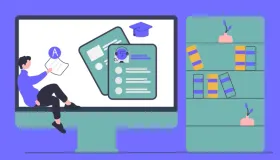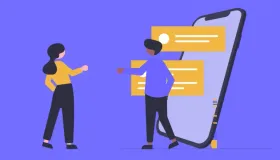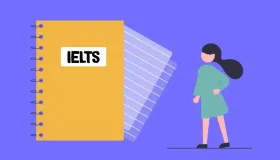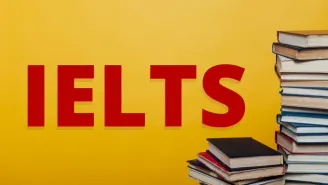How To Prepare For An Interview Reading Answer Passage
How To Prepare For An Interview Reading Answer Passage
Paragraph A. Why prepare?
There are three main reasons.
- One: Although you can’t guess every question you might be asked, if you are prepared, you can tailor your answers to fit.
- Two: If you’re well prepared, you will have more confidence, and this will affect the way you come across.
- Three: Attitude matters. Prospective employers will choose a not-quite-perfect but willing candidate over a brilliant one who obviously isn’t bothered.
Paragraph B. What to prepare?
- Find out about the organisation.
- Visit the website and read any materials that you have been sent. If nothing has been sent, phone the company to ask for any reading matter they may have.
- Talk to anyone you know who works there already.
- Find out about the job
- Ask for a job description or specification. This will tell you the duties that go with the job.
- Talk to anyone you know who is familiar with the work you may be doing.
- Find out what the employer is looking for
- Make a list of the skills specified in the job advertisement.
- Think of examples to back up claims that you have these skills.
You can then answer most of the questions that will come up, such as ‘Tell me more about how you work in a team’.
Add in a few ‘lessons learned’ – what you did and how you might have done it better. You can also outline any voluntary work you have done for a charity or any experience of paid work in an unrelated sector.
Paragraph C. Preparing for other kinds of questions
Interviewers are also looking for someone who is likely to stay with the organisation and progress within it. Prepare to answer questions about your ambitions for the future.
You may also be asked to account for gaps in your career history if you have any. Be positive and accentuate the learning or experience you gained during these periods.
Paragraph D. Preparing your own questions
- Do ask technical questions about software, systems, and structures and how things are done.
- Do ask about possibilities for training.
- Don’t ask about salary unless you have been offered the job.
When you’ve prepared as much as this, you’ve got a good chance of success.
Good luck!
Let’s explore the questions and answers of How To Prepare For An Interview Reading answer passage.
How To Prepare For An Interview Reading Answers with Sample Questions
Have you read the passage? Now, take the test and find How To Prepare For An Interview Reading answers! Try to answer these questions by yourself before you sneak a peek at the answers given below.
Check Out Top 40 IELTS Reading Practice Test Questions with Answers
Below are some top 35+ free IELTS Reading Practice test online questions with detailed answers to enhance your IELTS preparation online. We have provided sample passages for each test type for your reference.
- What Is Exploration Reading Answers
- Effects Of Noise Reading Answers
- The Discovery Of Baby Mammoth Reading Answers
- The Dead Sea Scrolls Reading Answers
- The Ring-Tailed Lemur Reading Answers
- Why We Need To Protect Polar Bears Reading Answers
- Nutmeg A Valuable Spice Reading Answers
- What Is Meaning Reading Answers
- Cutty Sark Reading Answers
- The Step Pyramid Of Djoser Reading Answers
- South Pole Adventurer Reading Answers
- The Future Of Work Reading Answers
- Ambergris Reading Answers
- Trees In Trouble Reading Answers
- Could Urban Engineers Learn From Dance Reading Answers
- The Flavour Of Pleasure Reading Answers
- The Value Of A College Degree Reading Answers
- Why You Should Delegate Tasks To Team Members Reading Answers
- Corporate Social Responsibility Reading Answers
- Forest Management In Pennsylvania USA Reading Answers
- Making Time For Science Reading Answers
- The Power Of Play Reading Answers
- Coastal Archaeology Of Britain Reading Answers
- How The Other Half Thinks Reading Answers
- Changes In Reading Habits Reading Answers
- The Forgotten Forest Reading Answers
- When Conversations Flow Reading Answers
- Attitudes Towards Artificial Intelligence Reading Answers
- The Ingenuity Gap Reading Answers
- A Bar At The Folies Reading Answers
- Booking A Wessex Cottages Holiday Reading Answers
- Sunset Tours Reading Answers
- Bird Migration Reading Answers
- Clutter Bugs Beware Reading Answers
- The Hidden Histories Of Exploration Exhibition Reading Answers
- Calisthenics Reading Answers
- Having A Lovely Time Reading Answers
- The Return Of Huarango Reading Answers
- Summer Activities At London Kew Gardens Reading Answers
- Computer Games For Preschoolers Reading Answers
- Extinct The Giant Deer Reading Answers
- Micro Enterprise Credit For Street Youth Reading Answers
- Plain English Campaign Reading Answers
- Glow Worms Reading Answers







